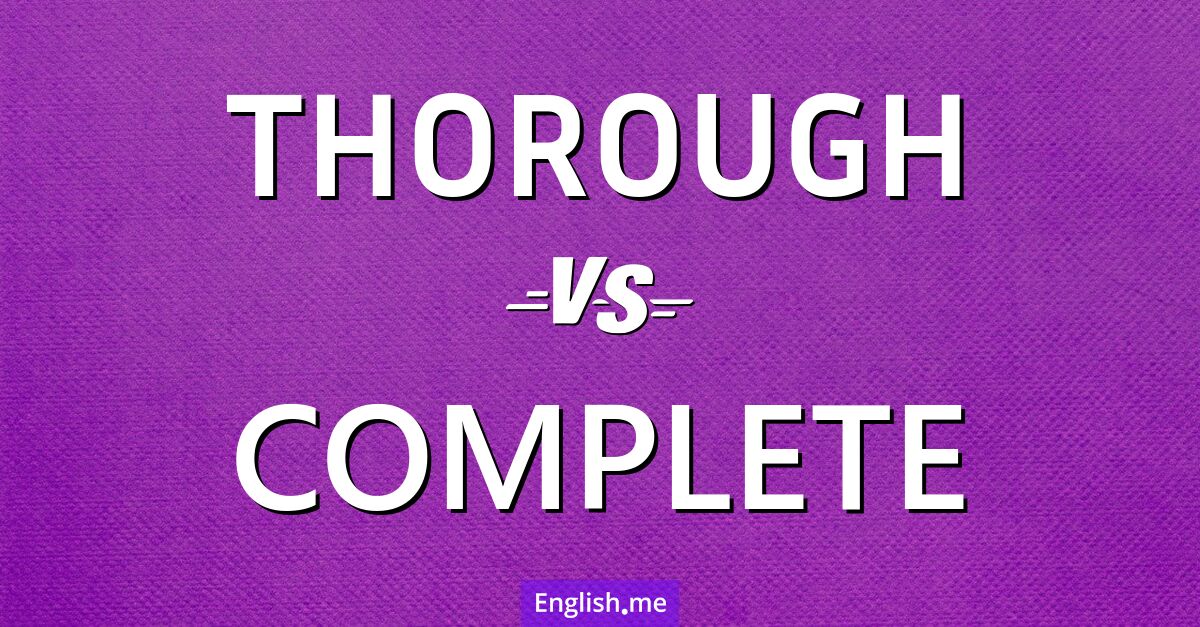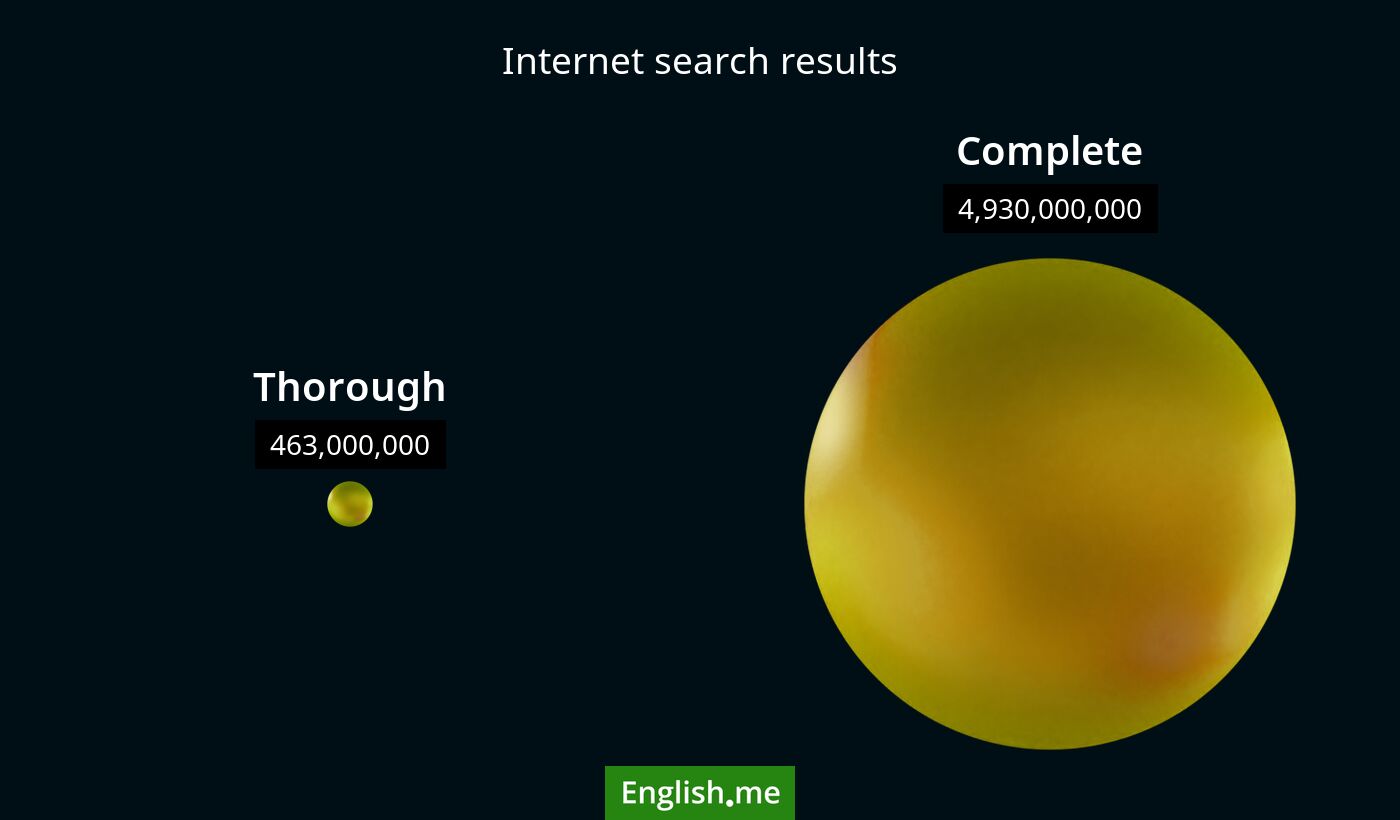Exploring the nuance between "thorough" and "complete"
Reviewed and edited by  Lloyd Cooper 30/10/2024, 03:58
Lloyd Cooper 30/10/2024, 03:58
English.me team member

 What is similar?
What is similar?
Both "thorough" and "complete" describe a sense of wholeness or fully addressing something. They can be used to indicate that nothing has been missed or left out.
 What is different?
What is different?
"Thorough" often implies great attention to detail or meticulousness, ensuring that every aspect has been carefully considered. "Complete", on the other hand, signifies that something is whole or finished, meaning nothing is missing or lacking in terms of its fundamental components.
 Which one is more common?
Which one is more common?

 Examples of usage
Examples of usage
Thorough- She conducted a thorough investigation of the case.
- His report was extremely thorough and left no questions unanswered.
- The thorough cleaning of the house took all day.
- The project is complete and ready for submission.
- Once you receive your diploma, your education will be complete.
- The complete series of the books is now available for purchase.

 English
English español
español française
française italiano
italiano deutsche
deutsche 日本語
日本語 polski
polski česky
česky svenska
svenska Türkçe
Türkçe Nederlands
Nederlands